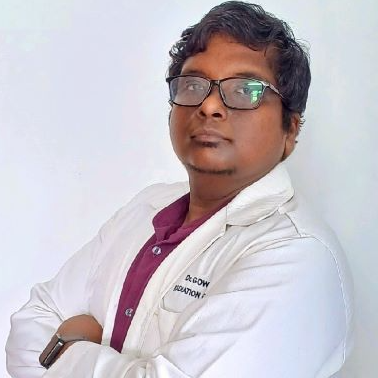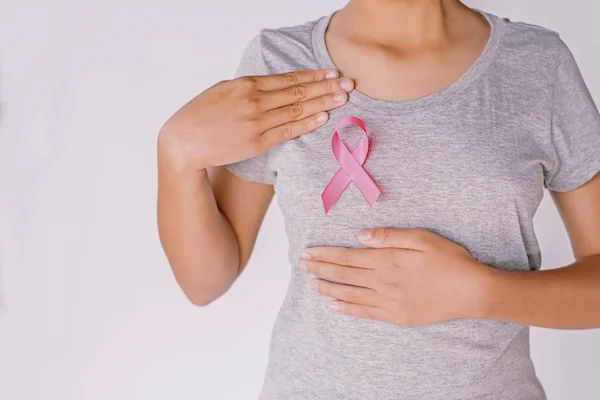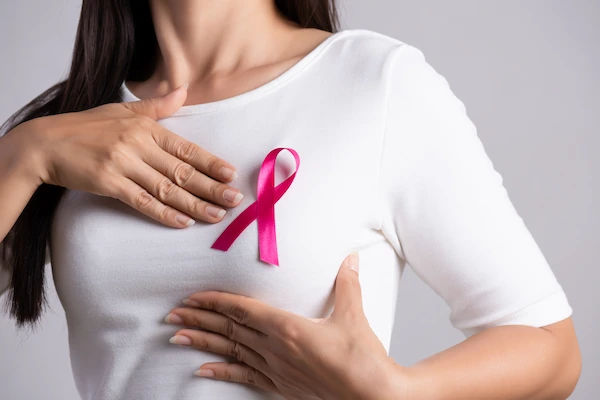Breast Cancer Early Detection Guidelines
Explore breast cancer early detection guidelines, including recommended screening ages, frequency of mammograms, and the importance of self-exams and clinical evaluations for timely diagnosis and treatment.

Written by Dr. Dhankecha Mayank Dineshbhai
Reviewed by Dr. Md Yusuf Shareef MBBS
Last updated on 13th Jan, 2026

Breast cancer is one of the most common cancers affecting women worldwide. The good news is that early detection can significantly improve treatment outcomes and survival rates. Knowing when and how to check for breast cancer can make all the difference.
This article will guide you through the early detection guidelines, symptoms to watch for, and steps you can take to stay proactive about your breast health.
Why Early Detection Matters?
Detecting breast cancer early means:
- Higher chances of successful treatment: Early-stage cancers are often smaller and easier to treat.
- More treatment options: Surgery, radiation, or chemotherapy may be less aggressive if caught early.
- Better survival rates: The 5-year survival rate for localised breast cancer is over 90%.
Who Should Get Screened?
Breast cancer screening recommendations vary based on age and risk factors.
For Women at Average Risk
- Ages 40-49: Discuss with your doctor whether to start yearly mammograms.
- Ages 50-74: Get a mammogram every 1-2 years, as advised by your doctor.
- Ages 75+: Continue screening if you are in good health.
For Women at High Risk
If you have a family history of breast cancer, genetic mutations (like BRCA1/BRCA2), or previous radiation therapy, your doctor may recommend:
- Starting mammograms earlier (before age 40).
- Additional tests like breast MRI or ultrasound.
How to Detect Breast Cancer Early?
1. Mammograms (The Gold Standard)
- A mammogram is an X-ray of the breast that can detect tumours before they can be felt.
- How often? Every 1-2 years, depending on age and risk.
- Does it hurt? There may be slight discomfort, but it’s quick and safe.
2. Clinical Breast Exam (CBE)
- A doctor or nurse checks for lumps or changes in the breast and underarm area.
- How often? Every 1-3 years for women in their 20s-30s, and yearly after 40.
3. Breast Self-Exams (BSE)
- While not a substitute for mammograms, knowing how your breasts normally look and feel helps you notice changes early.
How to do a self-exam:
- Look in the mirror for changes in size, shape, or skin texture.
- Feel for lumps, thickening, or pain while lying down or in the shower.
- Check for nipple discharge or dimpling.
If you notice anything unusual, consult a doctor—don’t panic, but don’t ignore it either.
Consult Top Specialists
Warning Signs of Breast Cancer
Besides lumps, watch for:
- Swelling or pain in the breast or armpit.
- Nipple changes (inversion, discharge, or scaling).
- Skin changes (redness, dimpling like an orange peel).
Note: Many breast lumps are not cancerous, but always get them checked.
How to Lower Your Risk?
While some risk factors (like genetics) can’t be changed, you can reduce your risk by:
1. Healthy Lifestyle Choices
- Maintain a healthy weight: Obesity increases breast cancer risk.
- Exercise regularly: Aim for 150 minutes of moderate activity per week.
- Limit alcohol: Even one drink a day can slightly increase risk.
- Avoid smoking: Smoking is linked to many cancers, including breast cancer.
2. Diet Matters
- Eat more fruits, vegetables, whole grains, and lean proteins.
- Reduce processed foods, red meat, and sugary drinks.
3. Breastfeeding (If Possible)
- Breastfeeding for 1-2 years (total, not per child) may lower breast cancer risk.
4. Hormone Therapy Awareness
- Long-term use of hormone replacement therapy (HRT) after menopause may increase risk. Discuss alternatives with your doctor.
When to See a Doctor?
Consult a doctor if you notice:
- A new lump or thickening in the breast or underarm.
- Changes in breast shape, size, or skin texture.
- Unexplained pain or nipple discharge.
Conclusion
Breast cancer is treatable when caught early. Follow screening guidelines, know your body, and adopt a healthy lifestyle.
If you’re due for a mammogram or have concerns about breast changes, Apollo 24|7 makes it easy to book a consultation or schedule a test from the comfort of your home.
Consult Top Specialists
Consult Top Specialists

Dr. Sanchayan Mandal
Medical Oncologist
17 Years • MBBS, DNB Raditherapy, DrNB Medical Oncology
East Midnapore
VIVEKANANDA SEBA SADAN, East Midnapore

Dr. Sanchayan Mandal
Medical Oncologist
17 Years • MBBS, DrNB( MEDICAL ONCOLOGY), DNB (RADIOTHERAPY),ECMO. PDCR. ASCO
Kolkata
MCR SUPER SPECIALITY POLY CLINIC & PATHOLOGY, Kolkata

Dr.sanchayan Mandal
Medical Oncologist
17 Years • MBBS, DrNB( MEDICAL ONCOLOGY), DNB (RADIOTHERAPY),ECMO. PDCR. ASCO
Kolkata
Dr. Sanchayan Mandal Oncology Clinic, Kolkata

Dr Gowshikk Rajkumar
Oncologist
10 Years • MBBS, DMRT, DNB in Radiation oncology
Bengaluru
Apollo Clinic, JP nagar, Bengaluru

Dr. Gopal Kumar
Head, Neck and Thyroid Cancer Surgeon
15 Years • MBBS, MS , FARHNS ( Seoul, South Korea ), FGOLF ( MSKCC, New York )
Delhi
Apollo Hospitals Indraprastha, Delhi
(25+ Patients)
Consult Top Specialists

Dr. Sanchayan Mandal
Medical Oncologist
17 Years • MBBS, DNB Raditherapy, DrNB Medical Oncology
East Midnapore
VIVEKANANDA SEBA SADAN, East Midnapore

Dr. Sanchayan Mandal
Medical Oncologist
17 Years • MBBS, DrNB( MEDICAL ONCOLOGY), DNB (RADIOTHERAPY),ECMO. PDCR. ASCO
Kolkata
MCR SUPER SPECIALITY POLY CLINIC & PATHOLOGY, Kolkata

Dr.sanchayan Mandal
Medical Oncologist
17 Years • MBBS, DrNB( MEDICAL ONCOLOGY), DNB (RADIOTHERAPY),ECMO. PDCR. ASCO
Kolkata
Dr. Sanchayan Mandal Oncology Clinic, Kolkata

Dr Gowshikk Rajkumar
Oncologist
10 Years • MBBS, DMRT, DNB in Radiation oncology
Bengaluru
Apollo Clinic, JP nagar, Bengaluru

Dr. Gopal Kumar
Head, Neck and Thyroid Cancer Surgeon
15 Years • MBBS, MS , FARHNS ( Seoul, South Korea ), FGOLF ( MSKCC, New York )
Delhi
Apollo Hospitals Indraprastha, Delhi
(25+ Patients)



